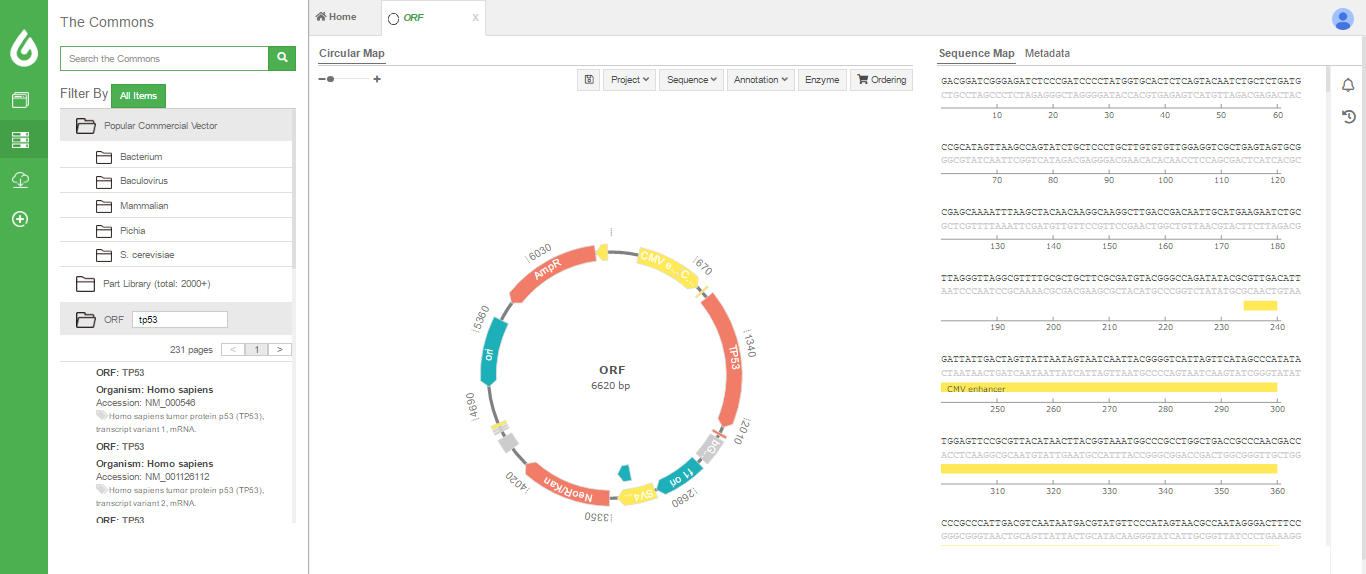Plasmid Platform Promises a Unique Data Sharing Solution

Complete the form below to unlock access to ALL audio articles.
No scientist is an island, and to maximize the power of data, researchers have to share their results with the wider community. A new platform's launch suggests sharing plasmid data may become easier than ever before.
GenScript, a leading biotech, provide all manner of services for gene and protein analysis. On July 8, they announced MolecularCloud, a sharing service that builds off of their CloneArk™ database. CloneArk™, launched in 2015, allowed researchers to reuse their old plasmids at a far cheaper cost than de novo synthesis. MolecularCloud takes the goals of saving cost and time for researchers one step further, letting researchers put their plasmids online for others to use.
GenScript have ambitious plans for MolecularCloud. Recent press releases have suggested the technology could save up to a billion dollars for the global research community. We caught up with Eric Wang, a Vice President at GenScript, to discuss the new platform.
Ruairi Mackenzie (RM): What is MolecularCloud and why is it unique in the industry?
Eric Wang (EW): MolecularCloud is a free and open-access platform where scientists can share and exchange DNA parts, plasmids and the wisdom that comes with them.
First of all, it is a plasmid repository that provides online management services to researchers around the world, Managed by GenScript, Molecular Cloud provides high standard QC and fast delivery for the plasmids.
MolecularCloud is unique because it is more than a plasmid repository, defined by 2 features:
1. It is also a social platform. Here, users can find different parts or plasmids, learn about their applications, and have conversations within the community. Not only plasmids but also ideas can be shared.
2. It integrates with GenScript’s free GenSmart Design online DNA design and plasmid mapping tool (Figure 1), it is a tool that allows all levels of users including ones with little training in molecular cloning, to turn ideas in to constructs, and GenScript will help to make the physical clones.
As far as we know it is one-of-a-kind solution for biology research professionals.

Figure 1. Screenshot of GenSmart Design interface
RM: How have you seen scientists interacting on the platform? Any examples of successful collaboration?
EW: We test launched the platform in July and formally launched on 8/15/2018. During the test we already have a few labs who are interested in it, either as depositors or buyers.
For example, Dr. Sheng Yang from Shanghai Institutes for Biological Sciences, Chinese Academy of Science has deposited the plasmids developed for microbial genome editing onto MolecularCloud platform. They delivered news upon the publishing of their research listed the MolecularCloud Cat.No. of their plasmids only. Their plasmids are very popular and have been requested by several scientists from different countries.
Because of short period time since we launched, we have not seen interactions between scientists in terms of comments and discussions on molecularcloud.org (Figure 2). Next we will start activities to accumulate more deposits and promote interactions between users.

RM: Can the MolecularCloud model be applied to genomic data sharing beyond the plasmid?
EW: Yes and we think it is a brilliant idea. Currently we choose plasmids because the material is easily manipulated and duplicated, so not only the data but also plasmid materials are shared. Genomic data can be easily shared too, but the material may not be very easy. However, sharing data itself can be valuable.
In the long run, any molecules that come with design and scientific value can be shared with the same concept. We can easily imagine mutation libraries, probes, primers, peptides and even protein to be shared.
RM: How does MolecularCloud fit in with GenScript’s other services?
EW: MolecularCloud originates from a popular service offered by GenScript since 2015, known as CloneArk™. This free service allows our users to archive clones from past orders at GenScript for future reuse. This gives user the ability to access their previous design online anytime, anywhere, and re-use them for future new designs without having to synthesize new genes from scratch. Three years into its launch, there are about one million clones in CloneArk™ system. This is how we come to know that plasmid reusing is an important need for laboratories and scientists. While CloneArk facilitates the reusing of internal plasmids for a team; it takes much bigger platform to extend the sharing among different scientists and labs. Thus, we created MolecularCloud to make plasmid sharing between different scientists super easy.
Here is what’s going to happen when scientist finds a plasmid of interest on MolecularCloud. They might want to use the plasmid directly in his study, and they can put in a request for GenScript to prepare 100ug of plasmid which is one of our services. Additionally, they might need to modify the plasmid, to put in their gene of interest, which means they will need mutagenesis or sub-cloning services. They can easily design their new plasmid online and GenScript can make them as services, too. Once the plasmid is made, any further downstream application, such as protein expression and antibody generation can also be completed at GenScript. With our one-stop solution, GenScript would like to facilitate research and fast forward innovation in biology.
Eric Wang was speaking to Ruairi J Mackenzie, Science Writer for Technology Networks


